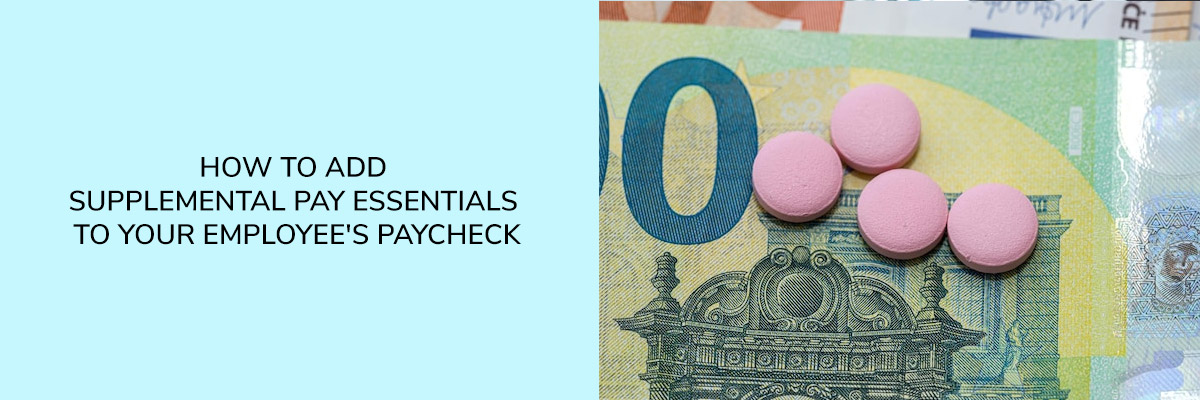Supplemental pay is a form of compensation that employers offer employees in addition to their regular wages and benefits. Supplemental pay can be in the form of a cash bonus, reimbursement for expenses incurred during work, or other types of benefits.
The most important thing to remember about supplemental pay is that it must be agreed to by both the employee and the employer. If an agreement isn’t reached, supplemental pay must be paid pursuant to state law.



Supplemental pay should generally be based on an employee’s level of experience, skill, or merit. Unfortunately, there is no federal law governing supplemental pay, so each state has its own rules governing this type of compensation.
Supplemental pay should not exceed the amount that would otherwise be paid as wages and benefits combined. Additionally, supplemental pay cannot be used to reduce an employee’s regular pay below the minimum wage.
Add Supplemental Pay Essentials To Your Employee’s Paycheck
To add supplemental pay essentials to an employee’s paycheck, follow these steps:
1. Create a memo or document that outlines the terms and conditions of supplemental pay. This document should include information such as the amount of supplemental pay that will be paid, the frequency of payment, and any other specific details related to this program.
2. Discuss this document with the employee and agree to its terms. Make sure all employees who will receive supplemental pay are aware of its provisions and offer them the opportunity to disagree if they have any concerns about the program.
3. Update the employee’s payroll records with information related to supplemental pay eligibility and payment schedule. This includes both their regular wages and any additional compensation that will be paid in the form of supplemental pay.
4. Issue the employee a paycheck that includes both their regular wages and any supplemental pay that has been added to their paycheck.
By following these steps, you can ensure that your employees receive the supplemental pay they need and deserve.
Final Words
Supplementing your employee’s pay can be a great way to show your appreciation. Supplemental pay is a great way to help employees who may be struggling to make ends meet. By adding this extra compensation to their regular paychecks, employees can have more money available to them each month. Attend the Compliance Prime webinar to learn more about supplemental pay.


